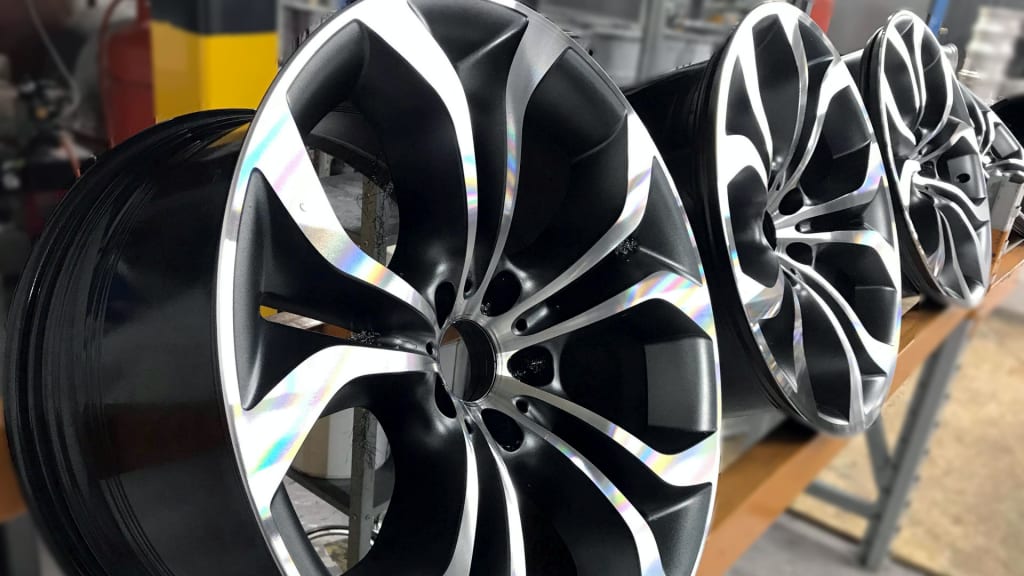A Comprehensive Guide To Alloy Wheel Repair: What You Need To Know
Alloy Wheel

Alloy wheels are one of the most important elements of a car, requiring special care when it comes to repairs. In this comprehensive guide, you'll learn everything you need to know about alloy wheel repair - from what type of damage can be fixed to which repairments are best left alone - plus an overview of the tools and supplies essential for successful repairs. So no matter what level of experience you have with alloy wheels, by the end of this article, you'll have all the information you need to get your car back on the road!
What Is Alloy Wheel Repair?
When it comes to repairing your alloy wheels, there are a few things you need to know. Alloy wheel repair is not a one size fits all solution. The type of damage your wheel has will dictate the best way to repair it.
Common types of damage that require alloy wheel repair include:
- Curb Rash is when your wheel comes into contact with a curb or other object and sustains scuffs or scrapes in the process. Curb rash can be pesky because it's unsightly, but it's also fairly easy to fix.
- Bends & Dents: if your wheel sustains a heavy impact, it may develop bends or dents. This damage can be more difficult to repair, but it is still possible to do so.
- Cracks: if your wheel develops cracks, it's important to get them repaired as soon as possible. Cracks can cause structural problems with your wheel and may even lead to tire blowouts if left unchecked.
Types of Damage That Can Be Repaired
Many different types of damage can be repaired on alloy wheels. This includes scrapes, dents, and chips. While some people might think it is not worth repairing these types of damage, it can save you a lot of money in the long run.
One type of damage that can be repaired is scrapes. These often happen when you hit a curb or something else while driving. They can also happen if you park too close to another car and scrape their bumper. While these scrapes may not seem like a big deal, they can cause your wheel to become unbalanced. This can lead to premature wear on your tires and could even cause your car to shake while driving.
Recommended For You - Scrapping Your Car Can Provide an Extra Source of Income
Another type of damage that can be repaired is dents. Dents often occur when you hit a pothole or something else in the road. They can also happen if you accidentally drop something heavy on your wheel. Dents can cause your wheel to become misshapen and could cause your car to vibrate while driving.
Chips are another type of damage that can be repaired. Chips usually happen when small rocks or other debris hit your wheel. They can also occur if you hit a curb too hard. Chips can make your wheel look ugly and lead to cracks if they are not fixed.
Advantages and Disadvantages of Alloy Wheel Repair
The main advantage of alloy wheel repair is that it can significantly improve the appearance of your wheels. If your wheels are damaged, repairs can make them look like new again. In addition, alloy wheel repair can also improve the performance of your wheels. Damaged wheels can cause your car to vibrate or shake, making driving uncomfortable and dangerous.
There are a few disadvantages to the alloy wheel repair, as well. The first is that it can be expensive. Repairing a single wheel can cost several hundred dollars, and repairing all four wheels can cost thousands. In addition, alloy wheel repair requires special skills and training. Not all auto body shops can properly repair alloy wheels. Finally, alloy wheel repair may not be possible if the damage is too severe. If your wheels are severely cracked or bent, they may need to be replaced instead of repaired.
What Tools and Equipment Do You Need to Repair Alloy Wheels?
Whether a pothole or a curb has damaged your alloy wheels, you can repair them with the right tools and equipment. Here is everything you need to know about alloy wheel repair, including what tools and equipment you will need:
Tools:
- Hammer
- Pliers
- Wire brush
- Drill with metal drilling bits
- Tape measure
- File or rasp
- Paintbrush
- Pencil
Equipment:
- Alloy wheel repair kit
- High-grit sandpaper
- Clear epoxy resin
Step-by-Step Guide to Alloy Wheel Repair
Almost every driver has experienced a flat tire at some point. It's an unsettling feeling, especially if you're unsure how to change a tire. Luckily, it's not as difficult as it looks. With a little know-how and the right tools, you can change a tire in no time.
Before you get started, make sure you have everything you need:
- A jack
- A lug wrench or impact gun
- A spare tire that is properly inflated
If you don't have a spare tire, you can use a temporary fix like a can of flat fixer or a sealant kit. These are not permanent solutions, but they will get you to the nearest service station so you can get your tire changed.
Now that you have everything you need follow these steps to change your tire:
- Safely pull over to the side of the road and turn on your hazard lights.
- Loosen the lug nuts before you jack up the car. If they are too tight to loosen by hand, use the lug wrench or impact gun.
- Place the jack under the car and raise it until the tire is lifted off the ground.
- Remove the lug nuts and then the flat tire.
How Much Does Alloy Wheel Repair Cost?
Most alloy wheel repairs will cost between $100 and $300. However, the price can vary depending on the severity of the damage and the type of alloy wheel being repaired. For example, repairing a bent alloy wheel will cost more than repairing a cracked one. Similarly, repairing a chrome alloy wheel will typically cost more than repairing a painted alloy wheel. Ultimately, the cost of alloy wheel repair will depend on the extent of the damage and the type of alloy wheel being repaired.
Alternatives to Alloy Wheel Repair
There are many ways to repair your damaged alloy wheels. You can take them to a professional or do it yourself home.
If you choose to take your alloy wheels to a professional, they will first assess the damage and then give you an estimate of the cost. They will also recommend the best repair method based on the damage's severity.
If you decide to do the repairs yourself, there are a few things you need to keep in mind:
- You must ensure you have all the necessary tools and supplies.
- You must read the instructions carefully before starting any work.
- You need to be very careful while working on your alloy wheels so as not to cause further damage.
Conclusion
We hope this comprehensive guide to alloy wheel repair will help you understand what is involved in this process and the different tools and products you should have on hand. From discovering whether your wheels can be repaired or need to be replaced entirely to familiarizing yourself with the necessary steps, we wish you all the luck in repairing your damaged alloy wheels!





Comments
There are no comments for this story
Be the first to respond and start the conversation.